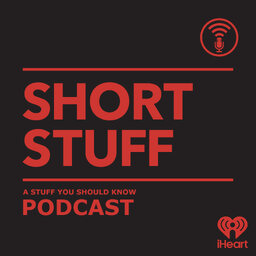SYSK Selects: How Currency Works
Even if you entirely eschew the concept of money, we'll bet you'd be hard pressed not to trade in some form of currency. Learn how everything from cows to cacao beans to tiny shells from Maldives have served as currency at some time or another.
Learn more about your ad-choices at https://www.iheartpodcastnetwork.com
 Stuff You Should Know
Stuff You Should Know


